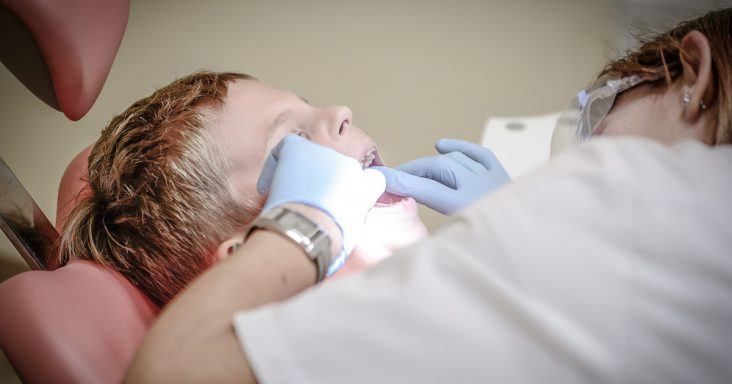Arkansas dentist group pushes back against ‘slapdash’ state guidelines
by May 15, 2020 4:10 pm 6,221 views

A letter sent to Gov. Asa Hutchinson from an attorney representing the Arkansas State Dental Association is anything but complimentary about state rules allowing dentists to resume procedures. The mandated rules are “Ill-conceived,” “slapdash measures,” and “sow confusion and disorder,” the letter noted.
On May 11 the Arkansas Department of Health issued guidelines for the resumption of elective dental procedures. The long list of guidelines include the wearing of facemarks and other personal protective equipment (PPE), scheduling only a reduced volume of patients to enforce social distancing, following screening guidelines set by ADH for other medical sectors, allow longer patient times to provide for sanitizing and disinfecting, and complete paperwork electronically before or after the visit.
“Last week, Secretary of Health Dr. Nate Smith recommended and issued a directive allowing the resumption of elective dentistry. While we applaud the spirit behind Secretary Smith’s efforts, the manner in which the state bureaucracy has implemented these efforts has been an unmitigated disaster—one that has already led to needless confusion, frustration, and harm,” noted the letter from attorney Jenny Holt Teeter, with the Little Rock-based firm of Gill Ragon Owen.
The ADH guidelines, which often refer dentists between state and federal practices without clear definitions, leave dentists in some jeopardy of unintentionally violating the rules or being subject to differing interpretations by the Arkansas State Board of Dental Examiners, according to Teeter.
For example, according to the association, the rules on scheduling are not definitive, leaving a dentist in possible violation if an inspector has a different interpretation. Also, the term “ample supply” of PPE also could be interpreted in various ways, leaving dentists at potential risk for a rule violation. Even more serious, the screening guidelines mandate that a dentist contact the local health department if they discover a patient has tested COVID-19 positive within 14 days of the dental visit. Alerting another agency of the health of a patient could be a violation of federal patient privacy rules under the Health Insurance Portability and Accountability Act of 1996 – often known as the HIPAA rule.
“These guidelines are unfounded, inappropriate, impractical, arbitrary, inconsistent, and vague – they have already led to confusion, frustration, and fear; they are also probably illegal. While the guidelines display a veneer of relevant-seeming public health principles, if viewed through the lens of the popular news media, these slapdash measures – made without formal, disciplined rulemaking or orderly, methodical input from dental health professionals or the public – leave dentists exposed to regulatory second-guessing, professional liability, and political manipulation. They tend to incite public fear and division and, thus, work directly at odds with the goals they seek to achieve,” Teeter wrote.
The ADH did not provide a detailed response to Talk Business & Politics when asked about the letter. Talk Business & Politics learned a meeting is planned for Monday during which the advisory group will consider the association’s letter. The ADH confirmed the Monday meeting had been scheduled.
“ASDA feels confident a solution can be reached. We look forward to achieving practice operations similar to counterparts in surrounding states,” the association, which has around 1,100 members, noted in a statement sent Friday afternoon to Talk Business & Politics.
The letter to the governor concluded: “Dentists should be given the liberty to proceed in the manner they, as highly trained, highly skilled professionals, deem to be in the best interests of their patients and staff. We respectfully request that the Secretary’s ill-conceived, badly implemented, and illegal restrictions on dentists be lifted immediately.”
